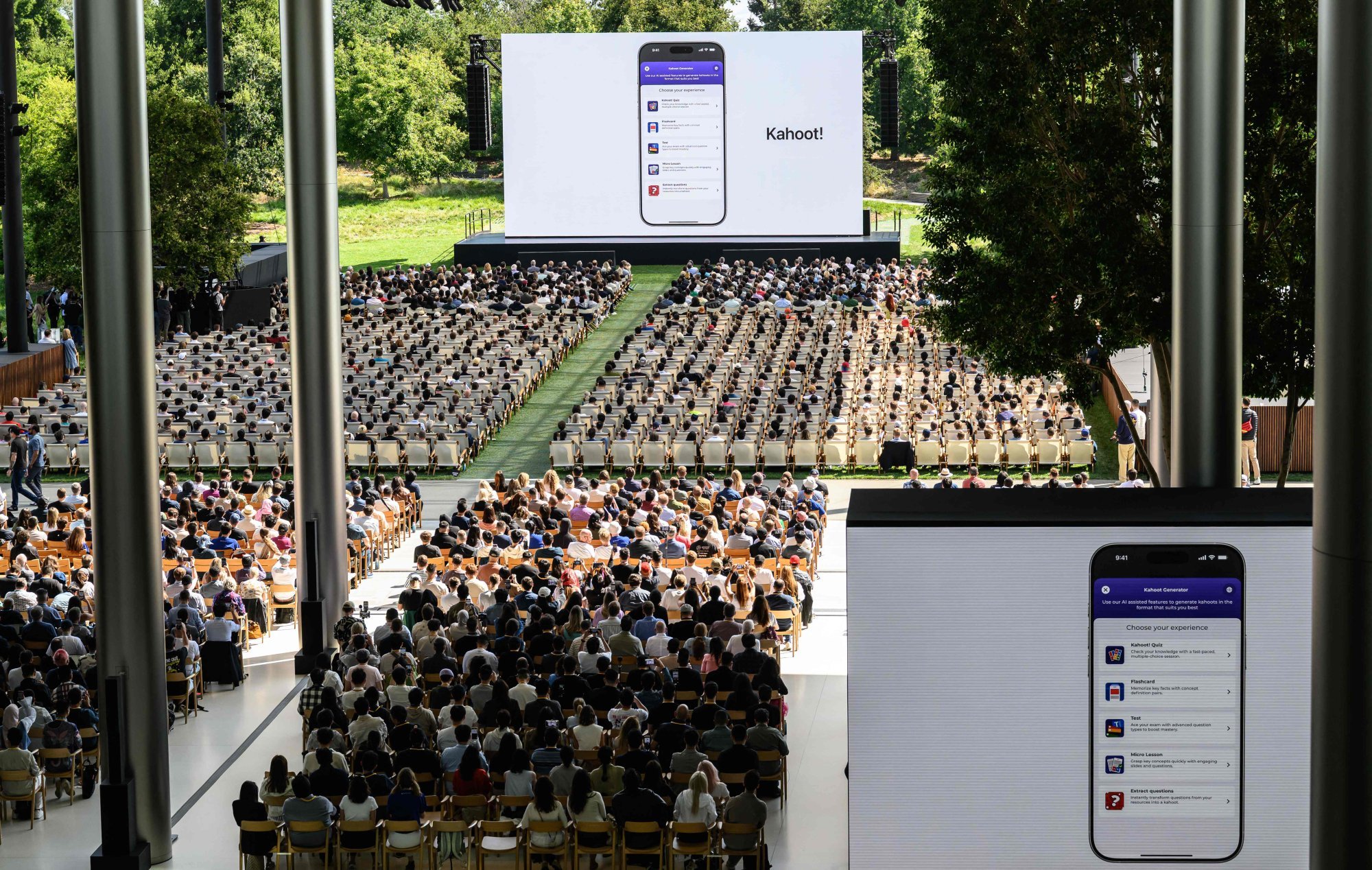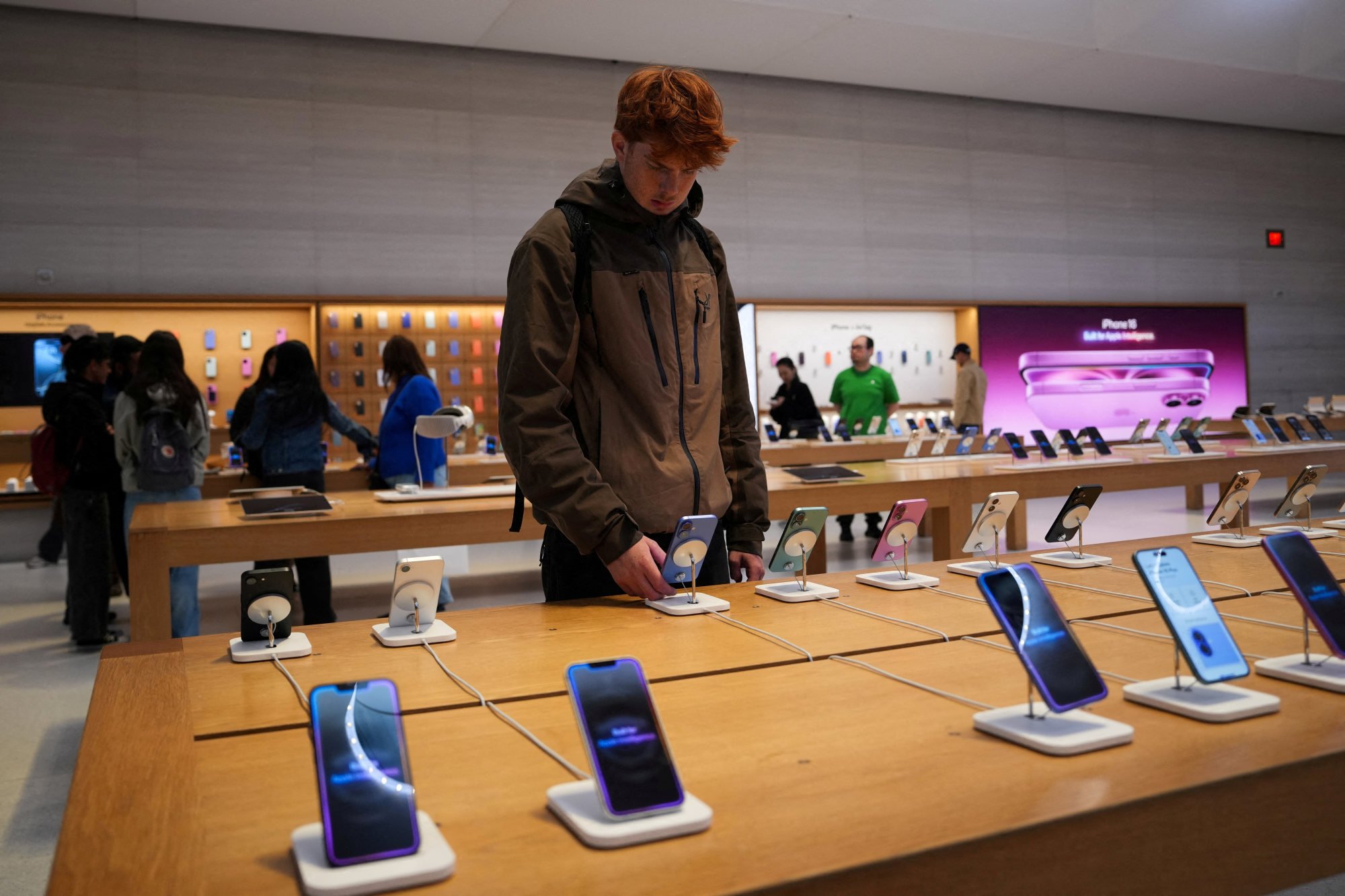Apple targets spring 2026 for release of delayed Siri AI upgrade
Apple has set an internal release target of spring 2026 for its delayed upgrade of Siri, marking a key step in its artificial intelligence turnaround effort.
The company's Siri team is aiming to bring the revamped voice assistant to market as part of an iOS 26.4 software update, according to people with knowledge of the matter. The long-promised changes will allow Siri to tap into consumers' personal data and on-screen activities to better fulfil queries.
Apple's ".4" updates - known as "E" on the company's internal software development schedule - are typically released in March. That was the case with iOS 18.4 this year and iOS 17.4 in 2024. But an exact date has not been set internally for the software, beyond a spring time frame, said the people, who asked not to be identified because the work is private.
Do you have questions about the biggest topics and trends from around the world? Get the answers with SCMP Knowledge , our new platform of curated content with explainers, FAQs, analyses and infographics brought to you by our award-winning team.
Apple, in response to a request for comment, said it has not announced exact timing for the new Siri features. It reiterated earlier statements that the upgrades are planned for the "coming year".
The timeline could still shift depending on whether new snags emerge. If the next several weeks of development work proves promising, the company could consider giving a preview of the features when it launches the next iPhones in the fall, one of the people said, though no final decisions have been made.
The upgrade has been a long time coming. Apple originally introduced the next-generation Siri features at its Worldwide Developers Conference in June of last year. The idea was to modernise the voice assistant - first introduced in 2011 - which has not kept pace with chatbots and other AI tools.

The technology in the works also includes a system called App Intents that allows Siri to more precisely control applications and in-app actions across Apple devices.
If the latest release timing sticks, Apple will have gone nearly two years between announcing the new Siri and delivering it to customers. It has been an especially high-profile delay because the capabilities were part of the iPhone 16 marketing last year - despite the new Siri not being close to ready.
Internally, Apple's AI and marketing teams have pointed fingers at each other. The engineering side has blamed marketing for overhyping features, while marketing maintains it operated on timelines provided to them by the company's AI teams, according to people with knowledge of the matter.
There also remains a debate over how much AI functionality Apple should be building itself and how much it should push off to partners like OpenAI. And the company has held internal discussions about buying smaller AI-related start-ups.
Within Apple, the original goal was to have the Siri features ready in the fall of 2024, alongside the new iPhone. The target then shifted to spring 2025. The company had privately expected a roll-out as part of iOS 18.4, before moving the target again to May with iOS 18.5.
By March, the company postponed the features indefinitely, saying at the time they wouldn't arrive until sometime in the coming year. The delays stemmed from engineering snags that kept the technology from working properly a third of the time, Bloomberg News reported earlier this year.
A key technical challenge: Siri's brain was essentially split in half for iOS 18. Apple used an existing system for common tasks, such as setting timers and making calls, and a newer-generation platform for upgraded Siri features. Combining the two architectures led to bugs, necessitating Siri to be rebuilt entirely.
The issues set off a firestorm within Apple, leading to the company's senior vice-president of AI, John Giannandrea, being stripped of all consumer-facing product oversight. That included his management of Siri and Apple's secretive robotics unit.
At the company's latest developer event this week, Giannandrea kept a low profile. It was a shift from the previous year, when he spoke in a number of press interviews about the Apple Intelligence platform and the company's AI work.
Engineering for the voice assistant was taken over by Vision Pro headset creator Mike Rockwell and software engineering chief Craig Federighi. Both executives played key roles in the company's latest software announcements at WWDC. Rockwell is now leading work on Siri LLM, the internal name for the new underlying system to power the service and enable the delayed features.

While Apple announced a sweeping design overhaul for all of its platforms this week, it did not introduce major in-house AI features beyond opening its large language models to developers and adding live translation to calls and text messages. It also did not introduce or demonstrate Siri features, though Federighi did address the delay.
"This work needed more time to reach our high quality bar, and we look forward to sharing more about it in the coming year," he said at the beginning of the roughly 90-minute presentation.
Federighi and other executives also sought to downplay the company's struggles in AI, saying that the postponed Siri features were just a part of a broader push and that success in AI will be determined over the next several years.
The reality, though, is that the delays have already had repercussions. The technology was part of a planned smart home hub that has now been pushed back as well, keeping Apple from moving into a new product category, Bloomberg has reported.
The larger concern is how Apple's still-nascent push into AI will affect future hardware categories. The company wants to launch smart glasses next year featuring AI-enhanced cameras that can scan the surrounding environment. But as of now, it is still reliant on OpenAI and Alphabet's Google for image analysis.
More Articles from SCMP
Embassy urges Chinese in Iran to stay alert after Israeli airstrikes, explosions
Hong Kong stocks fall slightly on rising geopolitical tensions
Severe Tropical Storm Wutip: Hong Kong’s T1 to remain in force for most of Friday
Chinese man dons placard declaring he owns 2 buildings to attract partner who values family
This article originally appeared on the South China Morning Post (www.scmp.com), the leading news media reporting on China and Asia.
Copyright (c) 2025. South China Morning Post Publishers Ltd. All rights reserved.
Posting Komentar untuk "Apple targets spring 2026 for release of delayed Siri AI upgrade"
Posting Komentar